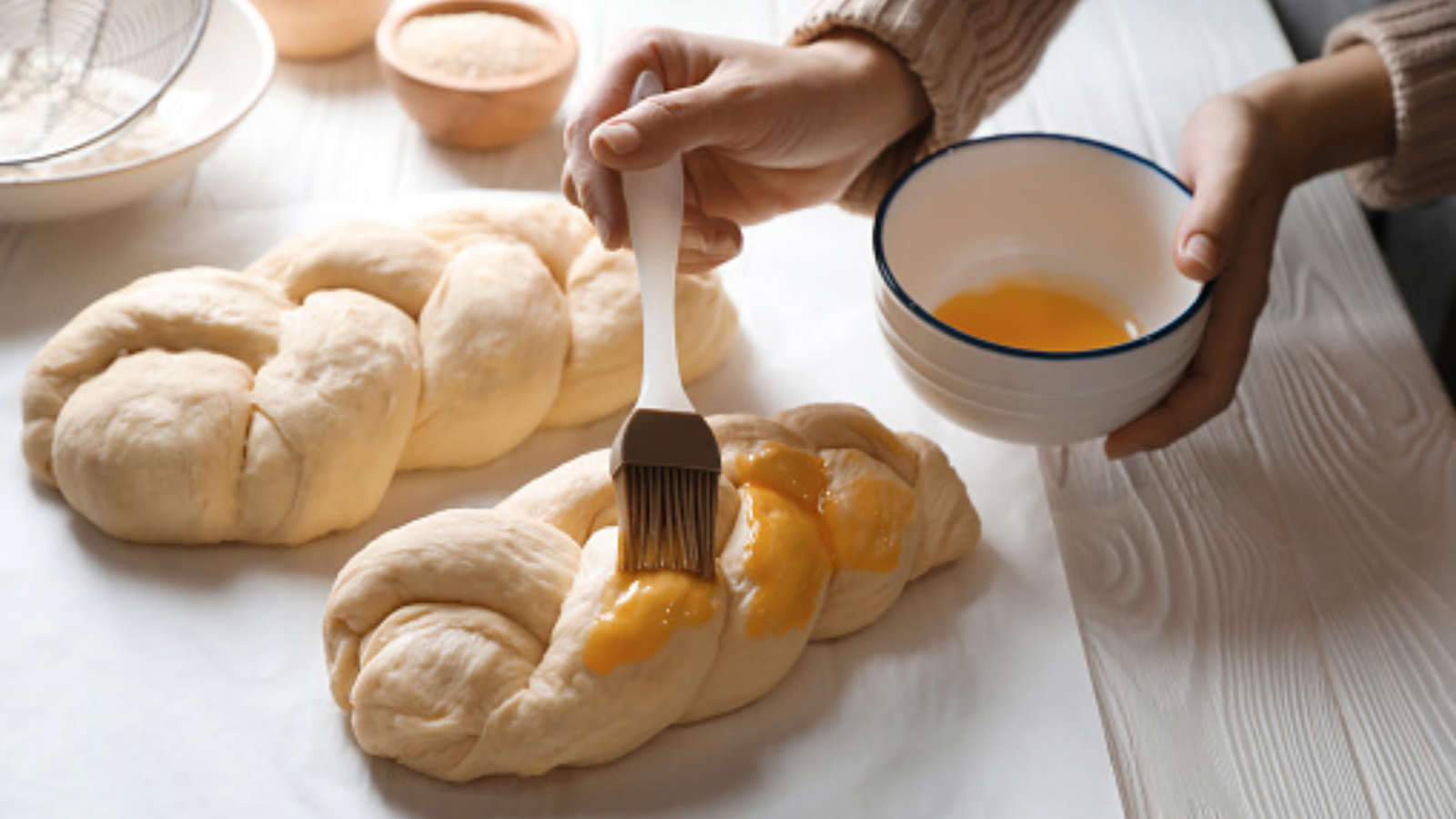Like so many Jews across the world, in my community in North London, we are helplessly looking on, witnessing the atrocities happening to our brothers and sisters in Israel. After a tense Simchat Torah with rumours flying around the synagogue, as many attendees do not use their phones on Shabbat and festivals, it was only Sunday night that we knew the full scale of what had happened in Israel. By Monday morning, collections had started and donations were pouring in — but it wasn’t enough. Glued to our TVs and phones watching, with bated breath and tears streaming, we wanted to do more.
By Tuesday, I already knew of six challah bakes happening in the upcoming days within a 1-mile radius of my house. As it’s very easy to buy excellent challah from a number of bakeries in my neighborhood, this call to bake challah together clearly extended beyond practicality.
The practice is rooted in the Torah’s book “Numbers,” which instructs the Jews to reserve a portion of dough for God, via the Kohanim (priests). In modern times, as we have no Temple, we are still obliged to remove a portion of challah dough and make a blessing before discarding it. This is known as “taking” challah or hafrashat challah, and is traditionally a mitzvah (commandment) associated with women, applied in moments of joy or tragedy.
Taking challah is powerful as, for those few seconds, we are focusing our energy on the reason that we are making the blessing; but it is just as powerful when we respond with a simple “amen.” This is the moment that our prayers are activated, and we say to God — over to you.
The Nosher celebrates the traditions and recipes that have brought Jews together for centuries. Donate today to keep The Nosher's stories and recipes accessible to all.
Over the last few years, I have noticed that challah bakes have gone from being something practised primarily by religious women to something that women of all backgrounds partake in. This change began in 2013, when Rabbi Goldstein, the South African chief rabbi, launched The Shabbat Project, which encouraged Jews all over the world to keep just one Shabbat. As part of the project, thousands of women gathered to connect to their Judaism through the act of baking challah.
Why are we, as Jewish women, drawn to challah specifically? On a superficial level, we love being together, talking about life and doing something tangible. Plus, this mitzvah also helps us feed our loved ones, and connects us to the generations of Jewish women who have gathered around a kitchen table, rolling grape leaves or stuffing cabbage.
I believe that in a world where spirituality is dwindling, it’s in these moments of unity that the innate spark of spirituality inside of all of us (and we do have this spark because we all have a soul) comes to life. As Jewish women, we hold a power which is activated tenfold when we come together; what we can achieve knows no bounds. Whether it’s five or 500 people, focusing our intentions on the same thing sparks a palpable surge of energy similar to when communities gather to unite in prayer.
It can be hard to tune in to these intentions right now; I have tried hard to censor what I look at on social media, staying away from horrific and graphic videos and photos that do nothing but break my heart and diminish my spirit. Instead, I’m choosing to focus on and partake in the amazing outpouring of good, and to do mitzvahs to bring light to a very dark situation.
On Thursday, I was one of millions of women who gathered to bake challah for Israel. That morning, I had arranged to bake with four friends, but by the evening we were up to 54 people. We spent the day racing around to scramble together bowls, brushes, flour and yeast. The local shops had run out of bread flour and the homeware shop had sold out of bowls because so many people had the same idea.
Rebbetzin Dove, of the organisation Seed, very kindly offered to lead our challah bake. It was only when she arrived and set up her Zoom that we saw she was also leading four others across the globe at the same time. For the hundredth time that week, tears streamed as I looked around and saw 54 women of all backgrounds, united in their desire to help Israel, and send their good wishes, solidarity and prayers. Who are proud to be Jewish. And who, instead of reacting with graffiti and smashing shop windows, as my community has seen this week with the latest repercussions of antisemitism, were striving to become better people through adversity, to do good and to be good.



